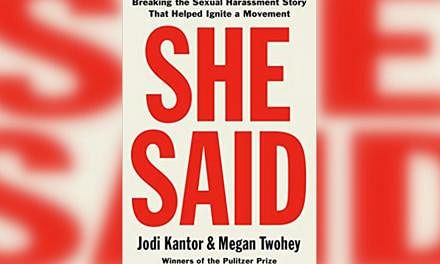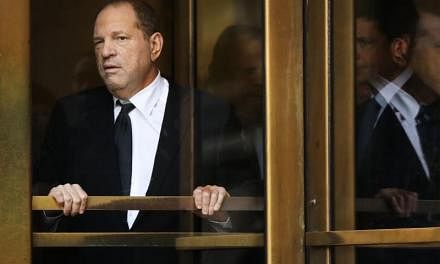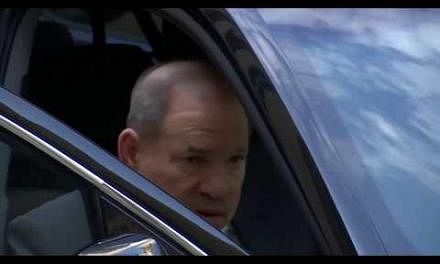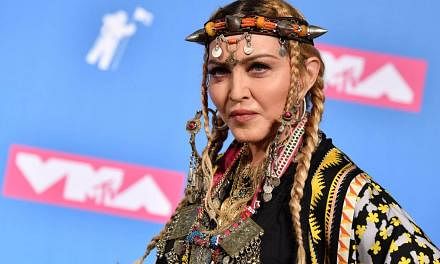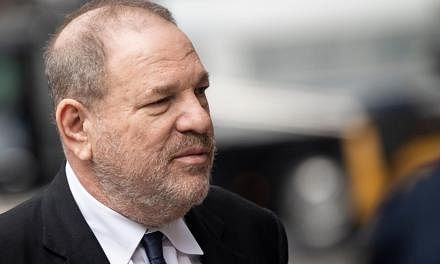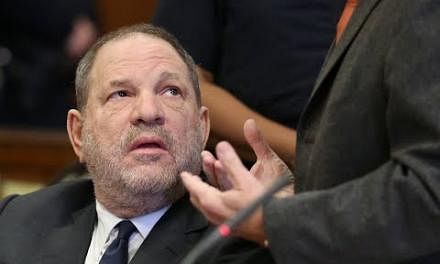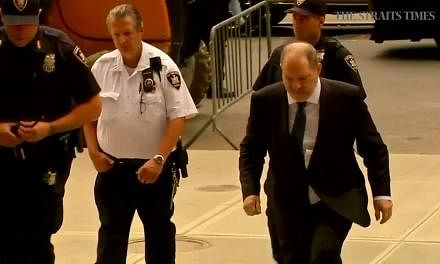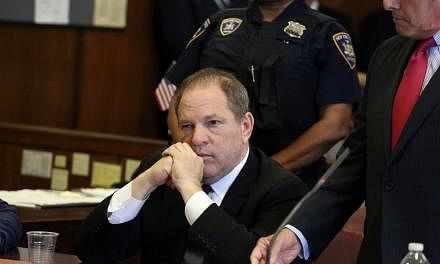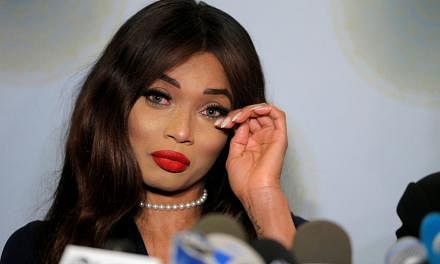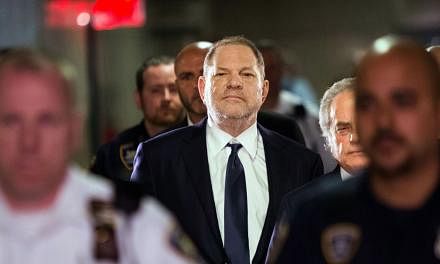(WASHINGTON POST) - After a wave of sexual harassment accusations in Hollywood, chatter in the industry isn't just about how sexism infects offices - it's also about how it infects what you watch.
Roy Price's resignation last week from Amazon Studios amid sexual harassment allegations has been especially resonant for cast members of Good Girls Revolt, the series about sexism in the workplace that Amazon didn't renew after one season.
Amazon Studios has maintained that its decision was solely because of the show's under-performance. But for many of those who worked on the show, its end was baffling and deeply personal. Since the allegations against Price have become public, several of the stars have been openly tweeting about the show, and privately texting each other about the new revelations in a group chat.
"The show getting cancelled in that way felt so horribly meta," said Erin Darke, who played Cindy Reston, a magazine researcher with grand career plans, in a recent interview. "And such a horrific reminder of how far we haven't come when one guy who seems didn't even watch it just had the power himself to say no, no one gets to watch it."
Based on Lynn Povich's memoir about female journalists' 1970 discrimination lawsuit against Newsweek magazine, Good Girls Revolt earned rave reviews, a 96 percent Rotten Tomatoes audience score and plenty of media buzz. Amazon's decision, which came just weeks after its October 2016 release, prompted the show's creator to make the rare move of calling out Price specifically.
"What we hadn't factored in is that Roy Price just doesn't care for the show," Dana Calvo told The Hollywood Reporter in December. The outlet, citing insiders, reported Price didn't think the show was an awards-season contender and questioned whether he watched the series.
Calvo added: "All I know is that in the (season two) pitch, he asked us to refer to the characters by the actors' names because he didn't know the characters' names."
Genevieve Angelson, who played the hard-working researcher Patti Robinson, said she "doubled over and sobbed" on her bedroom floor when she found out Amazon wasn't renewing the series. The excitement over the show had been palpable to her; for weeks, she had been getting recognised and flooded with deeply personal fan messages. "It was just so shocking. It was so the opposite of everything the evidence had told us," Angelson said. "I've been the lead on other TV shows before, and that visceral response in my day-to-day life hadn't happened before."
Like competitors Netflix and Hulu, Amazon doesn't release its viewership data. An outside firm that compiled audience estimates for Sony said the show was a hit, especially with women. Amazon's now-former head of comedy and drama development, Joe Lewis, said that those figures "are wrong and that the show wasn't performing at the levels we had hoped for".
Amazon and Sony, which produced the show, both declined to comment for this story. (Amazon founder and chief executive Jeffrey P. Bezos owns The Washington Post.) Various subscription-based platforms have ended shows after one season. Amazon Studios didn't renew shows such as Betas and Mad Dogs. After the cancellation, Sony shopped Good Girls Revolt elsewhere. No other company took it on.
But, for the past week, fans have seized on the news about Price's departure to call for the show's revival. The former executive reportedly passed on The Handmaid's Tale and Big Little Lies, both of which won major Emmys, and, according to The Hollywood Reporter, he mused openly at a company party about whether the stars in the latter series would show their breasts.
Darke said the cancellation and Price controversy underscores the need for more female entertainment executives. "The feeling of not having an equal seat at the table, not only economically and politically, but also creatively, even just in the conversation - it feels like being choked," Angelson added.
Povich, who released her memoir in 2012, said she heard from young women who watched the TV adaptation and previously didn't have a clue that the women of Newsweek united in the landmark lawsuit. "I wrote the book because I believe in people knowing the history of their lives, and young women knew nothing about the lives of their mothers and grandmothers, didn't know there had been years and years of women laying the foundation by fighting for their rights," Povich said.
And her book - about how a group of young, anonymous women banded together confront their employers despite the career risks - sheds some light on why sexual harassment may be so rampant in Hollywood. "If someone is sexually harassing you, someone else is getting harassed, too," Povich said. "I was thinking about this in the Harvey Weinstein case - they had a different situation. They were actresses, freelancers, each coming in one by one, and didn't necessarily know each other. I could understand why they felt so vulnerable and had no one to talk to."
After dozens of women accused Harvey Weinstein of sexual harassment, several male celebrities professed ignorance of such misconduct, or regret for not having done more to stop the culture of enabling it.
Similarly, some men who watched Good Girls Revolt were shocked by some of the story lines.
For instance, Cindy's husband, eager to get his wife to quit her career aspirations and start a family, secretly pricked a hole in her diaphragm. A male friend of Darke's told her it never occurred to him that a man could get a woman pregnant to trap her.
"Even the most well-intentioned men in our lives actually don't realise the full experience of women," Darke said. "Entertainment can help open them to that."

